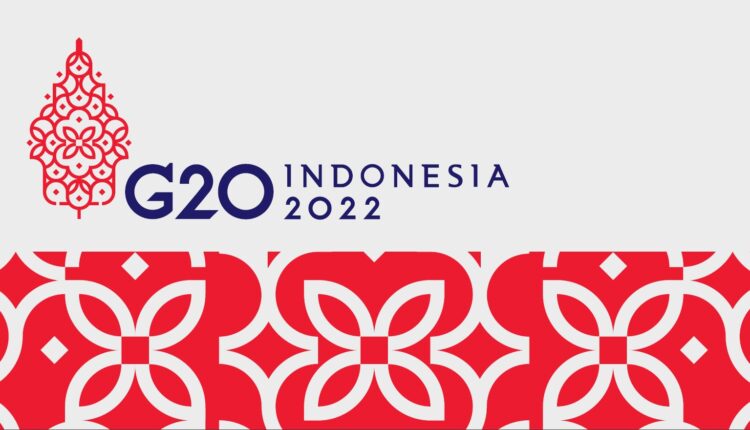Indonesia Encourages Developing Blue Economy at G20 Summit
By: Aulia Hawa )*
The Indonesian government encourages the development of the blue economy at the G20 Summit. Indonesia’s commitment is an effort to realize sustainable prosperity, especially in lifting marine resources.
Luhut Binsar Panjaitan as Coordinating Minister for Maritime Affairs and Investment, has invited G20 member countries to build a blue and green economy. He said this when he attended the G20 Climate Minister’s Meeting Gala Dinner in Belitung on September 7, 2022.
In his written statement, Luhut admitted that he invited all countries to build prototypes of a blue economy and a green economy for the future of the earth. He also invited G20 countries to play a role in discussions related to the G20 roadmap for developing countries. Because after all the sustainability and future of the earth depends on the commitment and action of each country in protecting it.
In addition, Luhut also revealed that there are challenges regarding the ability of developing countries to manage finances for climate improvement and sustainable development targets. In response to this, Indonesia has formed the Global Blended Finance Alliance , as a forum to encourage accelerated investment in these two fields.
Previously, the Head of Bappenas, Suharso Monoarfa, had promoted a blue economy roadmap to develop the potential of Indonesia’s marine resources. He explained that Indonesia has large capital for the development of the blue economy, namely 17,508 islands, 290 thousand km 2 of the Exclusive Economic Zone (EEZ) and 80,791 km of coastline.
According to him, the blue economy has the potential to accelerate global economic growth and achieve the Sustainable Development Goals (SDGs), such as no poverty, no hunger, clean and affordable energy, decent work and economic growth, industry, innovation and infrastructure. Then, responsible consumption and production, tackling climate change, ocean ecosystems and partnerships to achieve goals.
In addition, Suharso assessed that the blue economy can also prevent and reduce marine pollution by 2025 while increasing economic value at the same time. And, contribute to the transformation of the Indonesian economy after the Covid-19 pandemic.
On that occasion, Flemming Moller Mortensen as the Minister of Development Cooperation and Cooperation of Denmark gave 3 proposals in the blue economy.
First, a strong blue economy must be based on a fair and equitable green transition. The blue economy and the green energy transition must go hand in hand. Second, strong public-private partnerships are needed in a blue economy across national and regional sectors. Third, strong regional and multilateral collaboration is needed to overcome the blue economy cross-border.
Meanwhile, the Deputy for Economic Affairs of the Ministry of National Development Planning/Bappenas Alamia Adiningar Widiyasanti said that the formation of the Blue Economy roadmap was carried out in line with Indonesia’s G20 momentum. The goal is to absorb the aspirations of various relevant stakeholders. The plan is that the blue economy will be launched in early 2023 when Indonesia becomes chairman of ASEAN in 2023.
Amalia said that since 2020, Bappenas has launched a blue economy framework to unite the minds of all parties. In fact, this concept is predicted to be able to advance the economy in the Southeast Asia region.
Then, in 2021, the blue economy also began to be discussed at the Development Working Group forum as part of the G20. This is where development opportunities and efforts towards economic transformation are discussed.
On the other hand, the Acting (PJ) Governor of the Bangka Belitung Islands (Babel), Ridwan Djamaluddin said the Blue Economy is very relevant for Bangka Belitung. This was conveyed when giving a speech at the Development of Indonesia’s Blue Economy Roadmap meeting in front of the Belitong G20 delegates, at the BW Suite Hotel, Tanjungpandan, Belitung Regency.
Ridwan said that the G20 in Indonesia encourages collaborative efforts for global economic recovery. In connection with the event, Indonesia is in an effort to promote a blue economy in line with the MDGs that are being pursued by the United Nations (UN) supported by technology, tourism and energy innovation.
Ridwan said, as an archipelagic country, Indonesia has the second largest fishery potential after China. The sea with significant potential Coral Triangle is home to 76 percent of coral species and 47 percent of the world’s coral reef fish species. He also said that the blue economy is an idea for sustainable development, centered on the sea, requiring the survival of marine ecosystems.
The blue economy itself is a perfect potential for Indonesia to achieve economic benefits in utilizing existing resources for economic growth, improving lives in maintaining the preservation of marine ecosystems.
Marine management, of course, needs to be placed on the dimension of sustainable development as well as being part of supporting economic recovery from the impact of the Covid-19 pandemic. On the other hand, a healthy sea will also be the key to sustainable development for Indonesia.
)* The author is a contributor to the Pertiwi Insititute
